|
Advent, the word in and of itself instills hope and builds anticipation for greatness, joy and peace. What is it are we waiting for? It seems with the close of the year, we wait anxiously for those intimate times with our family and friends, a break from work and the routine and a time for closeness. Maybe, we are waiting for a Christmas party, presents and the holiday ambience. As a student, I always find it paradoxical that finals would be during the season of Advent. The hectic study and preparation of exams easily muddles the preparation I could be doing in my own heart for the King. The anticipation, the excess and busyness I find myself in reminds me of the Gospel story where the disciples forget the presence of the Lord in their midst: “And behold, there arose a great storm on the sea, so that the boat was being swamped by the waves; but [Jesus] was asleep. And they went and woke him, saying, ‘Save us Lord; we are perishing.’ And he said to them, ‘Why are you afraid, O men of little faith?’ Then he rose and rebuked the winds and the sea; and there was a great calm” (Matthew 8:23-26). Looking without eyes of faith, the disciples found themselves in a panic and disarray. With a focus on the storm and on the circumstance that assailed them, the disciples forgot the most essential truth that was right there with them on the boat: the Sleeping Christ. The answer to their cries for help was peacefully present in their situation ready to grace them with a great calm. What is it, again, that we are waiting for during this Advent Season? The gift we are waiting for is the sleeping babe, the sleeping Christ, in the manger. The Divine Son, who humbles Himself so greatly that He arrives in the stillness of night, in the quiet with shepherds and sheep alike. The Creator God comes in the stillness. What we are waiting for is the Prince of Peace. My own hurriedness in finishing all of my papers and exams, finding the perfect gifts for my friends and family, making travel plans and somehow finding time to stop and recognize where I am headed resembles the experience of the disciples. I am awaiting His peace, but my actions reveal otherwise. I must intentionally make the effort to stop and breathe in what I am truly searching for this December. May the anticipation throughout this Advent season bring us to stop and ponder the mystery of the Lord of the Universe resting in a manger who has come to encounter our hearts. May the peace of the Sleeping Christ invade our hearts, our minds, and our actions so we too may accept the true gift He wishes for us all this season: a great calm (Matthew 8:26). **This blog was originally published on December 12, 2015.** **This photo is from: https://thejesusquestion.org/2011/12/25/nativity-paintings-from-around-the-world/**
0 Comments
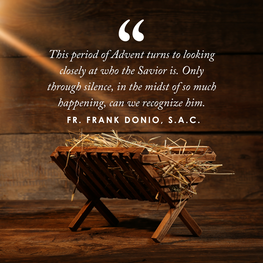 On the cusp of Christmas, our lives can be so full of doing this and that. It is usually not a time of silence and contemplation. And yet, the most famous Christmas hymn is Silent Night. It is worth considering that night that we will remember in only a few short days. This period of Advent turns to looking closely at who the Savior is. Only through silence, in the midst of so much happening, can we recognize him. Pope Francis offers us these considerations: “We can ask ourselves: What place does silence have in my days? Is it an empty, perhaps oppressive, silence? Or is it a space for listening, for prayer, for guarding my heart? Is my life sober or filled with superfluous things? Even if it means going against the tide, let us value silence, sobriety and listening. May Mary, Virgin of silence, help us to love the desert, to become credible voices who testify to her Son who is coming” (Angelus, December 10, 2023). The questions asked by Pope Francis are good ones to meditate on in these last days of Advent. Entering into listening and prayer, we can hear God’s voice more clearly. The voice of the One who comes into the world as Prince of Peace and sends us forth to testify to the world our faith in him. May the Charity of Christ urge us on! The Catholic Apostolate Center team is keeping you in special prayer during the Advent and Christmas seasons. May you have a blessed Christmas and a faith-filled New Year! In God, the Infinite Love, Fr. Frank In Advent, we are asked to keep two themes of the season in mind: the birth of the Christ child and preparation for his arrival to Earth again to end time. These great events, that of God descending in human form to Earth to save us from our sins by his death and resurrection, and the end of time with his arrival through the second coming, are powerful and mystical events. I often forget to focus my thoughts on this period from just before Thanksgiving until just before Christmas begins. One way over recent years that has helped me remember this awe-inspiring season of hope and repentance is through listening to one of my favorite Advent hymns: Let All Mortal Flesh Keep Silence. As a brief refresher, it is a song whose lyrics are based on the Divine Liturgy of St. James and has been used as a hymn in Greek since around the third or fourth century. Speaking about the awesome power of Christ and his gift to us through the Eucharist in vanquishing the powers of hell and bringing eternal light, this hymn was revitalized during the Oxford Movement of the 19th Century and adapted to English. For Catholics, we believe in the Real Presence, so our understanding and awe hopefully go much deeper when sung with lyrics such as: “King of kings, yet born of Mary, As of old on earth He stood, Lord of lords, in human vesture, In the body and the blood; He will give to all the faithful His own self for heav'nly food.” For me, this song about Christ Jesus descending and giving of his own life and blood for us – simply because he loves us – is a powerful and calming reminder of what Advent is really about. It is not just about Christmas, and the gift giving, or even just the celebration of Christ’s birth. His birth is not what saved humanity. It was his sacrificial death and gift of the Eucharist that provides us that opportunity to join him in heaven for eternity as fulfillment of the covenant between God and his people. In a season with some of the darkest and coldest days for us in America, a song like this helps us remember that even in our darkest moments, Christ is there as a hopeful light. While the season of Advent is wrapping up, I invite you to take a few moments during your busy season to reflect on the power and awesome love of God’s gift to us, and the preparations we need to make for his return.
As we enter into the second week of Advent, I am drawn to reflect on Mary’s advent 2000 years ago. This period of preparation can be difficult to enter wholly into, especially in a secular world that desires to skip straight to Christmas, but one way to more fully experience the anticipation of Advent is to look to Mary. We can observe how to live out her anticipatory advent of bringing Christ to others in silence every time we receive Our Lord in the Eucharist. When Mary gave her ‘fiat’ at the annunciation, the Christ-Child was made incarnate in her womb, and she spent nine months silently bearing Christ within her and bringing Him to every person she encountered. How radical that intimacy must have been, to be the only soul on earth who knew Christ, the only one to match heartbeats with Him, to be the source of life for the savior of the world. And yet, this time of intimacy was one of great silence and humility. The Christ-Child in the womb did not make a sound, for the first several months there was little sign that Our Lady could take consolation in His presence besides the promises given to her during the Annunciation. In that silence the only way Our Lady could know her Son and King was through allowing herself to become so silent as to hear the heartbeat they shared. This silence leads to the humility of Our Lady giving all of herself to Our Lord, and this humility of laying her life down fully leads to her willingly bearing the persecution of her advent. In the greatest humility, Mary walked around Nazareth bearing the King of the Universe, and allowed assumptions of her character to be made. She did not make a scene with those she encountered, announcing loudly that she was the Theotokos, but rather allowed Christ to work in the silence, as seen in the narrative of the Visitation, when the child within Elizabeth’s womb leaps for joy at an encounter with Christ. It is in all of these reflections that we as children of Mary learn how we are also supposed to live in advent. Like Mary, we hold the Christ-Child so intimately within our very bodies every time we receive the Eucharist. We get to experience our own advent each time Our Lord enters humbly into us – the simple veil of bread and wine mimicking the simple veil of infancy which hides, from those who do not hold Christ, the reality of His presence. We have nothing we could give our King that would be a worthy offering, so we offer Him our lives. We allow Him to transform us into living tabernacles, our breath becoming His breath, our steps becoming His steps. We carry Him in our hearts and through the silence of our witness, allow Him to encounter the people we meet. Through living our lives in recognition that we carry Christ in our hearts, we grow in desire to bring Him to those we encounter first before we bring ourselves, and we learn to live in a perpetual advent, like Our Lady, allowing Our Lord to become the source of life within us.
There are many names for Mary, originating from different times and places around the world. Our Lady of Guadalupe stands out from the rest as she is the only one who is depicted pregnant. A doctor examined the image and determined that her stomach had the exact dimensions for a mother in her ninth month of pregnancy. So, it is particularly fitting that we celebrate her in Advent as we prepare for Mary to give birth to the King of kings. The four candles we light around the Advent wreath symbolize hope, peace, joy, and love. As the moon reflects the light of the sun, Our Lady of Guadalupe reflects the light of her Son. She radiates hope: Pregnancy brings hope because a new creation is made known. God could have chosen to save us in any way. Yet, He chose to be begotten in the womb of a young girl from a small town. One of my beloved theology professors says, “God became man so that He could have a mom!” How beautifully mysterious is that?! The Christ Child was hidden in a womb for nine months and then lived a quiet life at home with his parents for thirty years. He grew up alongside peers and shared in rich conversations with the people He encountered. He entered the darkness of human frailty so that He could bring the light of God’s promise. Winter can sometimes reflect the season of our mind, heart, or soul. We can feel hopeless; spring can feel far away. In 1529, the first Bishop of Mexico was beginning to lose hope. Human sacrifices in the area were impacting the hearts of the people he was trying to evangelize. He prayed that Mary would intervene and send him flowers from Spain to assure him that she heard his prayers. Three years later, Our Lady appeared to a peasant named Juan Diego. The bishop had difficulty believing the news, so Juan Diego asked for a sign from Our Lady to assure the bishop that his testimony was true. On the spot where Mary asked the bishop to build a church, Juan found dozens of roses that originated from Spain. Not only were these roses not from the area, but it was out of season for Mexico in December. She radiates peace and joy: When life gets chaotic, the arms of a loved one are especially comforting. Sharing an embrace with someone who truly knows and loves us gives us a sense of peace and fills us with joy. In sharing these very human experiences of loving care and consolation, we can be encouraged by these words that Our Lady spoke to Juan Diego: “Listen, put it into your heart, my youngest and dearest son, that the thing that frightens you, the thing that afflicts you, is nothing: Do not let it disturb you… Am I not here, I who am your Mother? Are you not under my shadow and protection? Am I not the source of your joy? Are you not in the hollow of my mantle, in the crossing of my arms? Do you need something more? Let nothing else worry you or disturb you.” In the rush of the world around us during these weeks leading up to the birth of Christ, we can gaze at the face of Mary, full of joyful expectation awaiting her Child. We can picture her cradling the baby Jesus in her arms and remember His presence with us means the best is yet to come. After all, Jesus Himself says in John 10:10, “I came that you may have life and have it more abundantly!” She radiates love: In this imagery of Mary as a mother, Isaiah 49:15 comes to mind: “Can a mother forget her infant, be without tenderness for the child of her womb? Even should she forget, I will never forget you.” Devotion to Our Lady of Guadalupe, especially in the Americas, is due to the miracle of her apparition and her answering to the needs of her spiritual children. On the Cross, Jesus gave Mary to John and John to Mary. John as the “beloved disciple” represents all of us. We are invited to be childlike and purely offer ourselves to Mary as her children and receive the motherly love Mary wants to give to us. May you have a blessed Advent waiting in joyful hope for Mary to give birth to the savior of the world and of your heart. **This photo is from https://springfieldop.org/our-lady-of-guadalupe-the-maternal-face-of-god/**
Advent is one of the highlights of our liturgical year. Every year, at the end of the summer, I begin to yearn for colder days. Then autumn rolls around with the beautiful changing leaves, pumpkin pies, and the days seem to go by quicker and quicker (no thanks to Daylight Saving Time!). Then, just after Thanksgiving, we run right into Advent. Each year, it feels like we are sprinting to get to the holiday season and run right through Christmas and New Years. This year, though, I want to be more intentional about celebrating the joy of Advent and run an Advent Marathon, instead of my usual sprint. In the Gospel reading for the First Sunday of Advent we hear, “Jesus said to his disciples: ‘Be watchful! Be alert! You do not know when the time will come’” (Mark 13:33-37). I feel as if this is the perfect reading to begin this season, especially with the mindset of entering Advent more intentionally. It serves as a reminder that we all need to be more alert and keep an eye out for the Lord as we do not know when he will come, and we do not want to be caught off guard. It also reminds me to take a breath, slow down, and really embrace the importance of this season - to focus less on the commercialism of “Christmas” and to focus more on the liturgical significance of Advent. One of the ways I am hoping to be more intentional about Advent is through reading more Advent-related content. This means that I might have to take away some of my screen time (which might be a good idea anyways), and focus on reading content like daily devotionals or reflections, praying an Advent novena, or simply setting aside a few extra minutes a day for prayer. Another way I am hoping to be more intentional is through the decor I am putting out in my home throughout the season. While seeing all the Santa motifs, nutcrackers (of which I am an avid collector), and twinkly lights ignites a nostalgic feeling within me, seeing more faith-based decor will serve as a reminder of the importance of the Advent season. Similarly, I am going to try to tone down the Christmas music I listen to and try to replace a few songs in my playlist with some more faith-based music. This does not mean that I am stopping listening to Jingle Bells and the like, but this is an easy switch that will still keep me in the holiday spirit and incorporate more faith into my daily life. A final way in which I am going to try to be more intentional about Advent is by finding more resources to allow Advent into my home. The Catholic Apostolate Center has dozens of Advent-specific resources available to help with this. On the linked page you can find podcasts, webinars, teaching materials, Advent-specific materials for families, blog posts, and a plethora of other resources. Similarly to how I will be taking some time to read more about Advent, I also will take some time to research other forms of Advent materials and implement them into my daily life. Trying to be more intentional about Advent does not need to be a big undertaking that changes your daily routine. There are a handful of small things that can make a big difference in the impact that the season of Advent has on your life. I encourage you to try a few of these out in your own household and hopefully enjoy the marathon that is preparing for the birth of our Lord.
For many of us, the “infancy narratives,” from Matthew and Luke are well loved, but also well worn. Gabriel’s visit to Mary, Mary’s visit to Elizabeth, the birth of Our Lord in Bethlehem — not only do we ponder these events every year during Advent and Christmas, but also every time we pray the Joyful mysteries of the rosary. We know the stories, we know what they illustrate, we know why they’re important. But knowing the basic bullet points of the New Testament is not enough. We are called to know our Lord more deeply, more intimately. Dei Verbum compares the gift of Scripture to the gift of the Incarnation: “for the words of God, expressed in human language, have been made like human discourse, just as the word of the eternal Father, when He took to Himself the flesh of human weakness, was in every way made like men” (13). The Holy Spirit has bundled the immensity and perfection of God into our limited and imperfect human language. Like Christ contained himself in human form, so too has the Father contained himself in our human tongue. This Advent, let us return to the infancy narratives with fresh eyes. Recognizing that, like St. Ignatius advised his Jesuits to do while on mission, we can use the Word to ignite our senses, engage our collective memory as the people of God, and to understand our Lord as both father and friend. The Visitation of Mary to Elizabeth (Luke 1:39-56) is one moment from the infancy narratives that can prepare us in a special way for the coming of our Lord this Christmas. It provides us with a snapshot of Mary as a loving servant who is familiar with the Scriptures, bubbling over with joy, and confident in the promises of her God. Her example is one we can imitate even today. Spend some time with the narrative here and then consider Mary’s threefold approach to Advent:
Amidst the flurry of shopping, visiting, and end-of-year work activities that will surely fill our Advent calendars this season, take five minutes a day to spend time with God in prayer. If you struggle with prayer and don’t know what to say, read the Magnificat. Imagine a young, triumphant Mary, glowing before gray-haired Elizabeth and try to imagine the feelings of joy and wonder Mary must have felt in those moments. Then ask the Lord to help you channel that wonder as you prepare a place for him in your heart. Let your soul proclaim the greatness of the Lord this Advent, through joy, Scripture, and service. **This blog was originally published on December 1, 2016.** **This image is from: https://diglib.library.vanderbilt.edu/act-imagelink.pl?RC=48279** 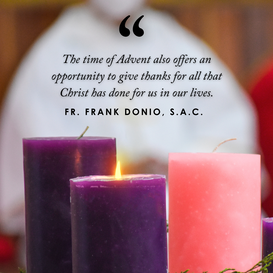 Many people do not like to wait. Western culture is instant. Waiting in line or waiting for something to arrive often creates impatience. The oft said line “patience is a virtue,” seems not to apply. We want whatever the thing is according to our schedule. God’s time, though, is not our time. We can be as impatient as we wish, but God will decide when the time is right. We need to decide if we are willing to wait, trust, and prepare. Christ is in our lives and wants to deepen his presence in us. Advent offers us a time to patiently wait for Christ who will come at the end of time and the one who is already incarnate among us which is what we celebrate at Christmas. The time of Advent also offers an opportunity to give thanks for all that Christ has done for us in our lives. It is a call to conversion of heart and deeper life in him. This is part of our preparation as we patiently wait. Conversion of heart may be a call to the Sacrament of Penance, so that we can receive the Eucharist in fuller love and openness. The Catholic Apostolate Center provides many resources for the Advent and Christmas seasons. We invite you to explore them and hope that they assist you in your preparation and waiting. For those in the United States, may you have a blessed Thanksgiving. For all, may you have a good and prayerful beginning to the Advent season. In God, the Infinite Love, Fr. Frank 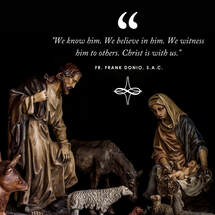 Christmas approaches. We are nearly through our Advent waiting. What has this time been for us? As we enter the joyful season of celebration of the Incarnation, we have an opportunity to embrace the humble simplicity of the scene. Only the shepherds were made aware on that night and came to adore. As St. Vincent Pallotti notes, it was as God wanted it to be. “Our Lord Jesus Christ, according to the instructions and signs given to the shepherds, allowed himself to be found as a child wrapped in swaddling clothes, and laid in a manger” (OOCC, II, 66). Eventually, those with faith in him came to know him as Emmanuel, God is with us. We know him. We believe in him. We witness him to others. Christ is with us. May we proclaim him as the angels did to the shepherds! Please know that the prayers of the Catholic Apostolate Center team are with you at Christmas and always. May you have a blessed Christmas! In God, the Infinite Love, Fr. Frank My grandfather, my Grandpa Norm, passed away the day after Thanksgiving. He was ninety-three and had been in failing health for a while, and earlier that week, he decided he was ready to bring in hospice, who kept him comfortable and without pain in his final days. While I miss him terribly, I know that he had a long, happy life, and I pray that he is feasting at the eternal banquet in heaven with my grandma, his parents, siblings, and many friends and family members. Grandpa Norm was my last grandparent to die. I was so fortunate to have had all four grandparents until I was nineteen. All four grandparents were major parts of my childhood (and with two of them, my adulthood), and the death of each of them holds a unique place in my heart. With the death of my last grandparent, those parts of my heart are being tugged a bit harder right now. The funny thing about grief is that it hits you in ways you cannot anticipate. My family and I drove from Washington, DC to Michigan for the services for my grandpa, and on our nine-hour drive home, I was making a mental to-do list of all of the holiday tasks I needed to accomplish when we returned home. One included working on our Christmas cards, and the grief came flooding as I realized I would have to remove my grandpa from our Christmas card list and that we would not be sending him a gift. It was something so small, but it hit me in a big way. Grief is hard. There is no way around it. The beauty of our faith, though, is that we know there is more after this life. We know we will be reunited with those loved ones we miss so dearly, and we must cling to that hope when we are deep in grief. We have to go through the darkness and sadness of Good Friday in order to experience the light and joy of Easter Sunday. In some ways, I am grateful for the timing of my grandfather’s death to have been at the beginning of Advent. The season of Advent is a time for reflection and preparation. During Advent, we prepare our hearts for the coming of Jesus not only at his birth, but also at his Second Coming. For me this year, I am adding another dimension to my time of reflection: remembering my grandparents, my grandfather especially, and being grateful for the gift they were in my life. There is something about this time of the year that lends itself to grief: the weather where I am is cold and damp, darkness comes sooner than I want it to, and there is a rush of busyness that often distracts me from the importance of this time leading up to Christmas. But in the sadness and darkness of this time—this year in particular for me—I look forward to the light of Christ entering the world on Christmas day and to his glorious return at the end of time. The Advent and Christmas seasons are some of the most important times in our Church. We are celebrating the arrival and birth of Jesus, our Savior! As we go through these seasons, families have different traditions that they partake in throughout this special time. These traditions help to bring us into a preparatory state for the birth of Jesus. If you want to implement some additional practices into your family's Christmas preparations and traditions, here are some ideas that can get you started.
These small practices not only highlight the importance of the Advent and Christmas seasons for your family, but they can also create lifelong traditions that can be carried on through your family. Some of my fondest memories of Christmastime are from the Vigil Mass, participating in the Christmas pageant, and making cookies with my family. I hope that you and your family have a wonderful Advent and Christmas and find time to joyfully anticipate and celebrate the birth of Jesus.
Today we celebrate the Solemnity of the Immaculate Conception. In celebrating this feast, we confess that: “The most Blessed Virgin Mary was, from the first moment of her conception, by a singular grace and privilege of almighty God and by virtue of the merits of Jesus Christ, Saviour of the human race, preserved immune from all stain of original sin” (Catechism of the Catholic Church, 491). That is to say: Mary, in a unique way, was free of original sin, so that, unburdened by the fear, confusion, and selfishness that accompany sin, she could give her “yes” with absolute freedom when asked to bear the Son of God. The Prayer over the Offerings at today’s Mass describes this teaching beautifully by saying, “We profess [Mary], on account of [God’s] prevenient grace, to be untouched by any stain of sin, so, through her intercession, we may be delivered from all our faults.” While “prevenient grace” is a bit of an unusual term, and not one most of us learn in religious education classes, it gets at the heart of what we celebrate on this our patronal feast day for the United States of America. The “prevenient grace” Mary receives is a grace given in anticipation of the extraordinary role she would play in salvation history as the Mother of God, but it also shows her ordinary human nature. Mary is not divine; like the rest of humanity, she too needs God’s grace and redemption through Christ’s saving actions. We might consider the following analogy which is often referenced in explanation of this teaching. Suppose a man falls into a deep and muddy pit, and someone reaches down to pull him out. The man has been “saved” from the pit but hasn’t escaped the mud stains he got from falling into it. Now imagine a woman walking along about to tumble into the pit herself, but just as she is about to fall in, someone holds her back and stops her from falling in. She too has been “saved”—not only from falling into the pit, but also from getting stained by the mud in the first place. While we receive God’s grace when we are cleansed of original sin in the waters of Baptism, Mary was kept free from the stain of original sin from the first moment of her existence. We are all saved by the same sacrifice of Jesus on the cross; Mary, however, was given this gift at a different point in time. The Catechism goes on to describe how this gift of grace was necessary for Mary’s unique vocation: “To become the mother of the Saviour, Mary ‘was enriched by God with gifts appropriate to such a role.’ The angel Gabriel at the moment of the annunciation salutes her as ‘full of grace.’ In fact, in order for Mary to be able to give the free assent of her faith to the announcement of her vocation, it was necessary that she be wholly borne by God's grace (Catechism of the Catholic Church, 490). Just as Mary had to be given the grace she needed to respond to her vocation, we too must rely on the grace of God to answer God’s unique call for us. It is fitting that we celebrate this feast within the season of Advent. We may well take advantage of this holy season and all it offers to open ourselves evermore to the gifts God wishes to bestow on us, so that we too can bring Christ’s presence to a world very much in need of it. Mary was able to devote herself to God’s will “wholeheartedly, without a single sin to restrain her, she gave herself entirely to the person and to the work of her Son…by God's grace” (Catechism of the Catholic Church, 494). We too can find ourselves more attuned to God’s will after seeking out the forgiveness of our sins through the Sacrament of Reconciliation, which is offered more frequently during this season of Advent. We can pause during this season of preparation and reflect on the following: How am I responding to my unique God-given vocation? How can I cooperate more freely with God’s will? How am I being called to make Christ present here and now? How can I cultivate a greater reliance on God’s grace? As we joyfully await the coming of Christ, may Mary, “full of grace,” loving mother, and model of holiness, intercede for us! We’re well into the first week of Advent, and if you’re like me, you’re probably sick of all the Christmas displays and music and consumerism that has bombarded our senses since November started. As an American, it’s always been easy for me to get pulled into the secular world’s excitement about Christmas, its eagerness to get started with all the partying, eating, gift swapping, caroling, and general Christmas cheer. But as I’ve deepened my faith as a Catholic, I have found that the more focus I put on Advent as a time of preparation for Christmas, the easier it is to block out the unending secular Christmas noise and ready my heart, my home, and my family for the coming of the Christ child. For most people, the phrase “preparing for Christmas” probably evokes memories of setting up Christmas trees and hanging lights outside, wrapping gifts, or organizing the ideal Christmas classics playlist. And while those things certainly count as preparation for Christmas, won’t we suffer burnout—or what I have seen referred to as “the holiday hangover”—if we spend all of November and December with our house decked out for Christmas and with Christmas music playing all day long? I know I would. A few years ago, as I was researching Catholic Advent traditions that I could incorporate into my family’s liturgical life, I decided that I ought to shift our emphasis from when to set up the Christmas décor and instead focus on the spiritual longing and the growing excitement for the arrival of the Messiah. Traditionally and liturgically, Christmastide lasts many days—at the very least until the Epiphany, but usually until the Baptism of the Lord. Why not leave the Christmas celebrations until Christmastide and focus on the preparation during Advent? Israel spent countless years in hopeful anticipation of the savior—is it really so difficult for me and my family to spend four weeks emulating that same sense of joyful expectation? The Catholic Church has so many symbols and traditions from which we can draw to prepare our hearts and homes for Christ. In our house, we not only light the Advent wreath every night, but we darken the dining room lights in order to emphasize the light that Christ brought when he came into the world. We also recently implemented the Jesse Tree—a tradition I did not grow up with, but one that I have come to love because it condenses salvation history into a timeline that is easy even for my children to follow. We don’t listen to Christmas music during Advent, choosing instead to listen to Advent music. We read children’s books that discuss the animals’ preparing the barn before the Nativity, or the journey that Mary and Joseph took before Jesus was born. When we experience Advent in this way, the anticipation for Christmas builds with each passing week. As Christmas Day draws closer, we start baking and freezing the Christmas cookies to be eaten during Christmastide and to be given as gifts at Christmas parties. I take time to plan out special activities for us to do during the twelve days of Christmas, or special meals I know everyone will enjoy during that time. We pray the O Antiphons. We make or buy gifts for our loved ones, and we talk about how giving gifts to our loved ones is a reflection of the great gift of Jesus, who was given to us on Christmas Day. In this way, when we finally decorate the house on Christmas Eve, we are all practically bouncing with excitement—and not just about presents, but about the miracle of Christ’s birth. Our children’s—and our own—sense of wonder is bolstered and preserved by our not celebrating too early. By steeping ourselves in the history of the first Christmas and by maintaining that same sense of watchful hoping and waiting, we can more fully appreciate the wonder of the arrival of the promised Messiah. **This post was originally published on 12/3/2019** Underneath where eyes don't go A sound that keeps the beat that holds Alive the song I listen close Do I follow, do I follow, where it goes This refrain from the song, Where it Goes, by the Gray Havens provides a beautiful canvas of the human longing to live life most deeply. The human heart desires more than what the human flesh can provide on its own, recognizing that persistent longing (like a “beat that holds”) that exists “underneath where eyes don’t go.” This is, in a nutshell, the religious experience of every human person. The religious person recognizes this persistent desire and seeks to pay attention to it. I share this on the feast of St. Andrew and in the season of Advent, because the account of Andrew and John in the Gospel reflects this very experience--our experience. It is also an experience that the season of Advent invites us to embrace. What is this experience? It is our longing for the exceptional. Yes, it sounds cliché and hollow, but that is because many common words have lost their true value and power. Fr. Giussani, in his book Generating Traces, helps us recapture the essence of this word by describing the exceptional as that which corresponds to the deepest desires of one’s heart. So this experience (manifested by the song lyrics above and Andrew in the Gospel) is this longing to encounter that which corresponds to the deepest desires of one’s heart—a longing for the exceptional. The question in the song, “Do I follow?” is answered affirmatively by Andrew. He follows. But he follows a particular man. Why? What makes this one man worth following? What is it about this man that triggered a response to leave everything behind and follow? What is it about this man that allowed the disciples to have this great affection for Him? Fr. Giussani beautifully asks these questions and offers that one-word answer that again seems so simple—too simple—yet indeed profound. Fr. Giussani writes that this man, Jesus Christ, generated attraction because He was exceptional. And so Christ was exceptional in the eyes of the apostle Andrew because Christ corresponded to the deepest desires of his heart. Such reflections may lead us to wonder what this desire actually looks like in our life. Yes, we can, as faithful believers, affirm that Jesus is truly exceptional, but what does my desire for the exceptional look like on a daily basis? This year’s theme for the 2023 New York Encounter beautifully illustrates our current situation. To paraphrase, the theme highlights that the last few years have strengthened within each of us a desire for authentic community, a community that is truly interdependent. The uncertainty of the past few years (and the feeling of our inadequacy to face said uncertainty) have intensified our desire to be seen, accepted, and affirmed by someone in the flesh. We yearn for the presence of someone in our life who is not scandalized or embarrassed by our brokenness and sins. We desire the presence of someone who understands our life with certainty and accompanies us throughout it. We long for a presence that truly sees us and unconditionally loves us. This is why Andrew followed Jesus along the road. For the first time, Andrew experienced this presence that saw him, a presence that understood his own life better than he did, a presence that filled this need. This is why Andrew was able to respond with such simplicity and certainty—a simplicity and certainty which would seem absurd to any outsider (think about the absurdity of following someone along the road whom you have barely met!). But the exceptional presence of Christ—the fulfillment of his desire to be seen and loved—draws out this unquestionable attraction and clarity in Andrew. The season of Advent can draw out this unquestionable attraction and clarity within each one of us. This beautiful yet short liturgical season proposes a time to reawaken this desire and see with renewed eyes the exceptionality of Christ. In our longing to be seen, known, and loved, Advent proposes the coming of the only presence that can fill this need. Advent gives us, if you will, a space “underneath” in which we can listen close to the song of our heart. And like Andrew, we can follow.
With the newliturgical year beginning this first Sunday of Advent, I am making a resolution to approach each liturgical season and day with more intentionality. In my collaboration with religious communities, I have come to admire the way they commemorate the life of their particular community within the rhythm of liturgical feasts and seasons. Their communal prayer is often guided by an ordo, a list specific to each community and/or diocese that organizes the dates of feasts (particularly those special to the community, such as patronal feasts or local saints), readings, and a necrology (the anniversaries of the deaths of members of the community) for each day. They also celebrate milestones and anniversaries of the profession of final vows and ordinations.
Why not approach the liturgical year in a similar way in our own family, our domestic Church? We too can strive to be more mindful about preparing for and celebrating special days within our Church and our family, taking time beforehand to plan which Mass to attend or finding other creative ways to observe a feast or special occasion. As we approach this new liturgical year, it may be a good time to look ahead and make plans to mark not only the big celebrations, like Christmas and Easter, but also every feast day your family may want to celebrate. Certainly this includes birthdays and anniversaries, but it also means making note of
To find some of these dates, you may need to refer to sacramental records, such as a Baptismal Certificate, or consult family members. Personal planner templates available online can be customized to mark these dates, and once you’ve compiled a basic list, you can continue to add to it year after year. You may also wish to set aside a few special items for these celebrations, such as a bottle of holy water, a baptismal candle or baptismal garment, pictures from the event observed, holy cards, or images of the saints or family members commemorated. Children may particularly enjoy setting up a prayer space to reflect the occasion. One helpful resource for planning is the Catholic Apostolate Center’s feast day website, which has information about the saints organized by feast day, region, time period, and more. Another useful resource is a book entitled Catholic Household Blessings and Prayers from the United States Conference of Catholic Bishops. It contains special blessings for birthdays, name days, and baptismal anniversaries as well as short daily prayers; seasonal blessings and prayers; blessings for life events such as graduations, birthdays, engagements, pregnancy, childbirth, adoption, and moving into a new home; and prayers for times of sickness and difficulty. You can even make it a practice to have a special meal on these days, choosing a menu related to the feast being observed or simply enjoying the favorite foods of the person being celebrated. Not only can you take the opportunity to share about your faith, but you can also share a bit of family history and bring the liturgical year to life in a more personal way. By doing these things, we learn more about the mysteries and people of faith commemorated, even as we strive to emulate them. We also join in the age-old tradition of the “People of God [who] have observed fixed feasts, beginning with Passover, to commemorate the astonishing actions of the Savior God, to give him thanks for them, to perpetuate their remembrance, and to teach new generations to conform their conduct to them” (Catechism of the Catholic Church, 1164). This approach of gratitude, remembrance, and faithfulness may help us live the liturgical seasons more fruitfully, as we unfold throughout the course of the year the various aspects of “the whole mystery of Christ from his Incarnation and Nativity through his Ascension, to Pentecost and the expectation of the blessed hope of the coming of the Lord” (Sacrosanctum Concilium, 102 §2). May this new liturgical year truly be a “year of the Lord’s favor” (Lk 4:19)! |
Details
Archives
July 2024
Categories
All
|
About |
Media |
© COPYRIGHT 2024 | ALL RIGHTS RESERVED

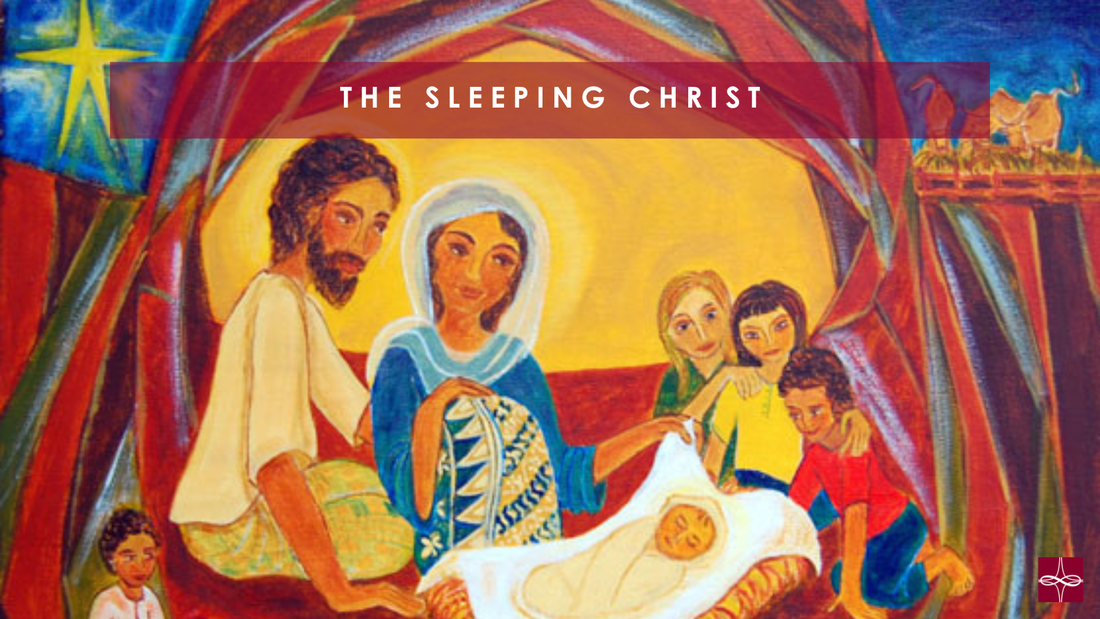

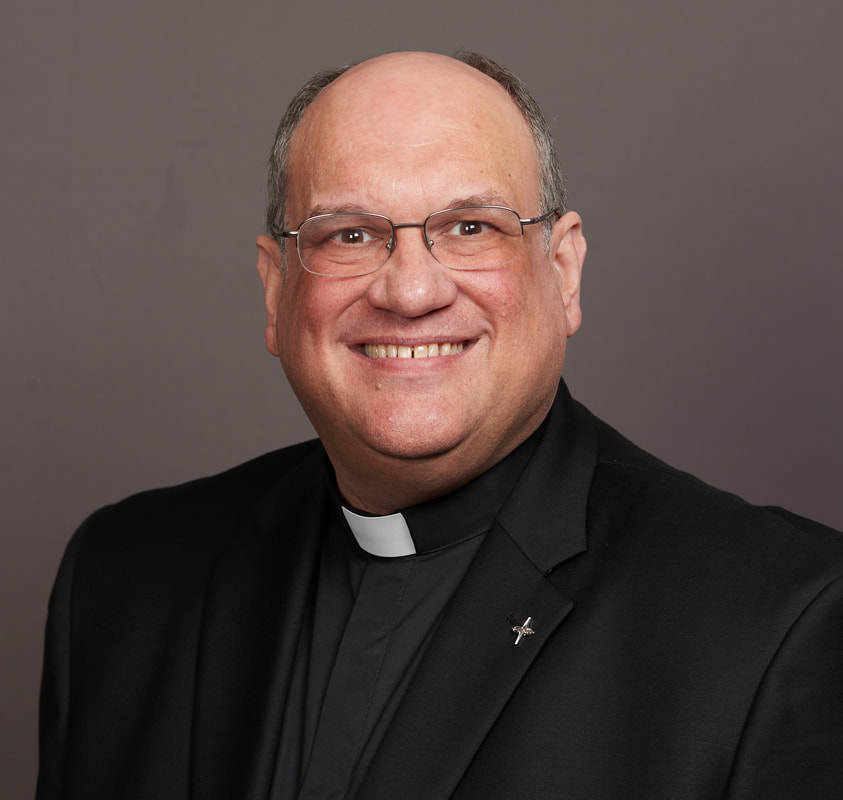
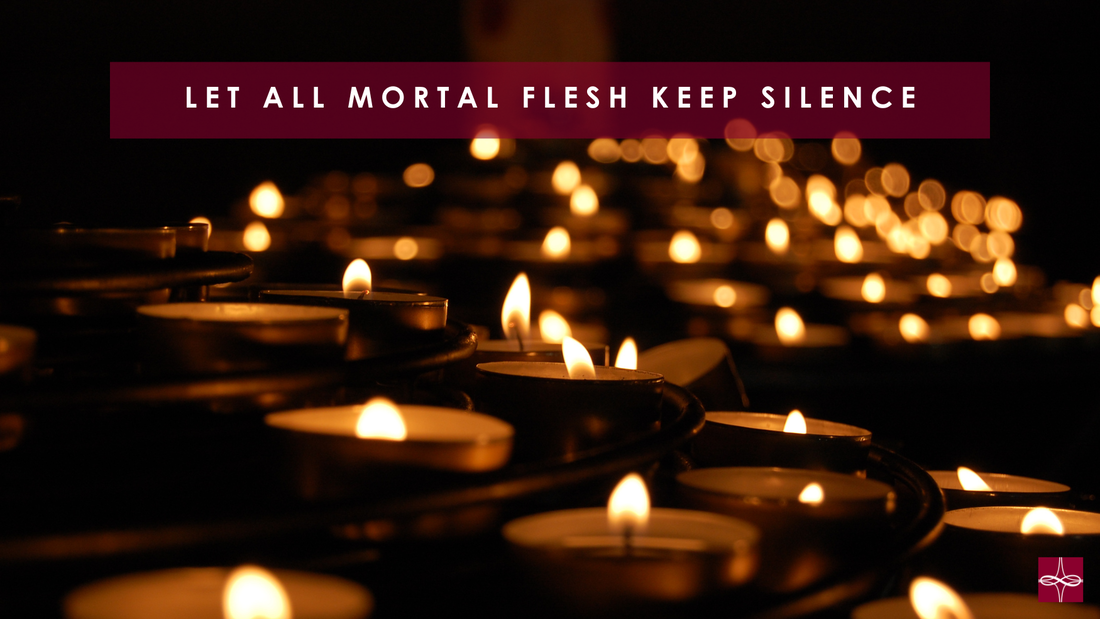

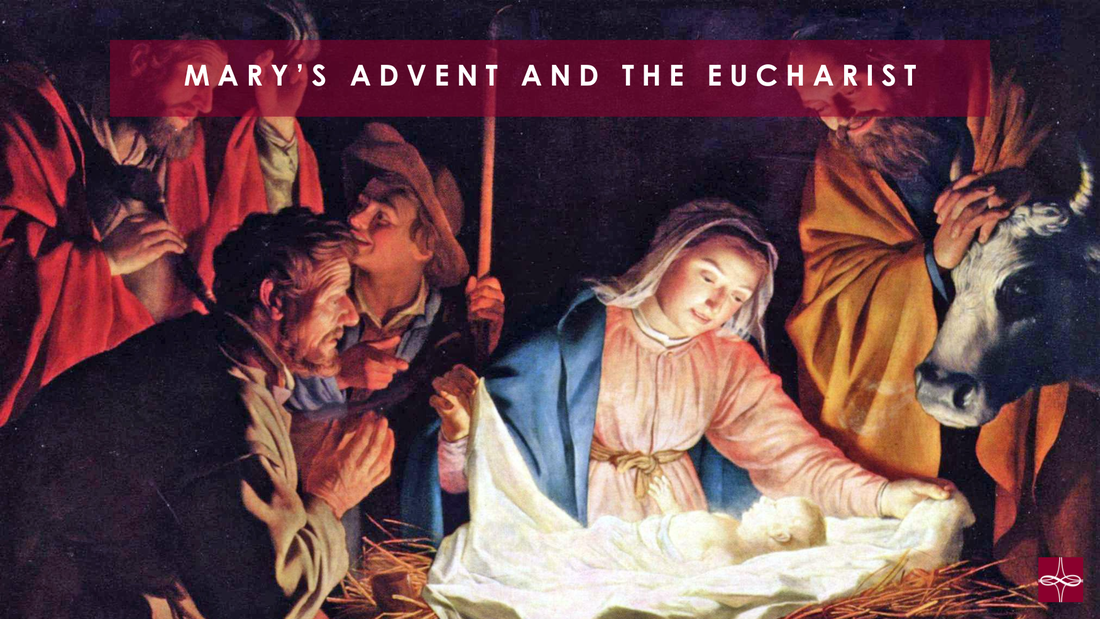

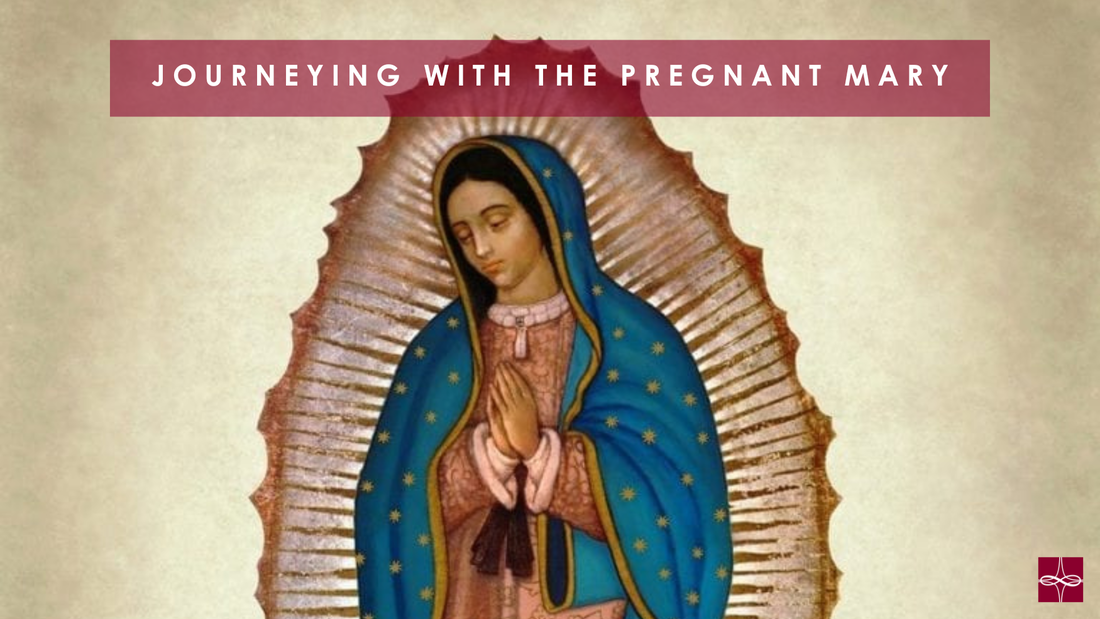
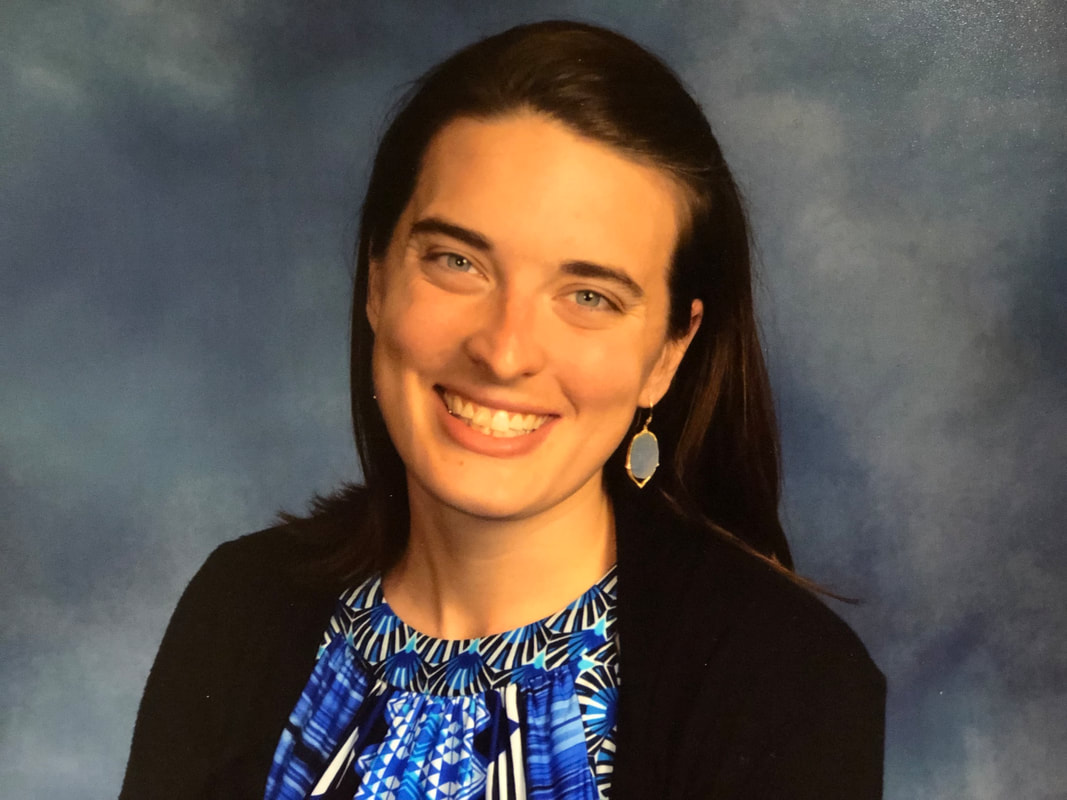
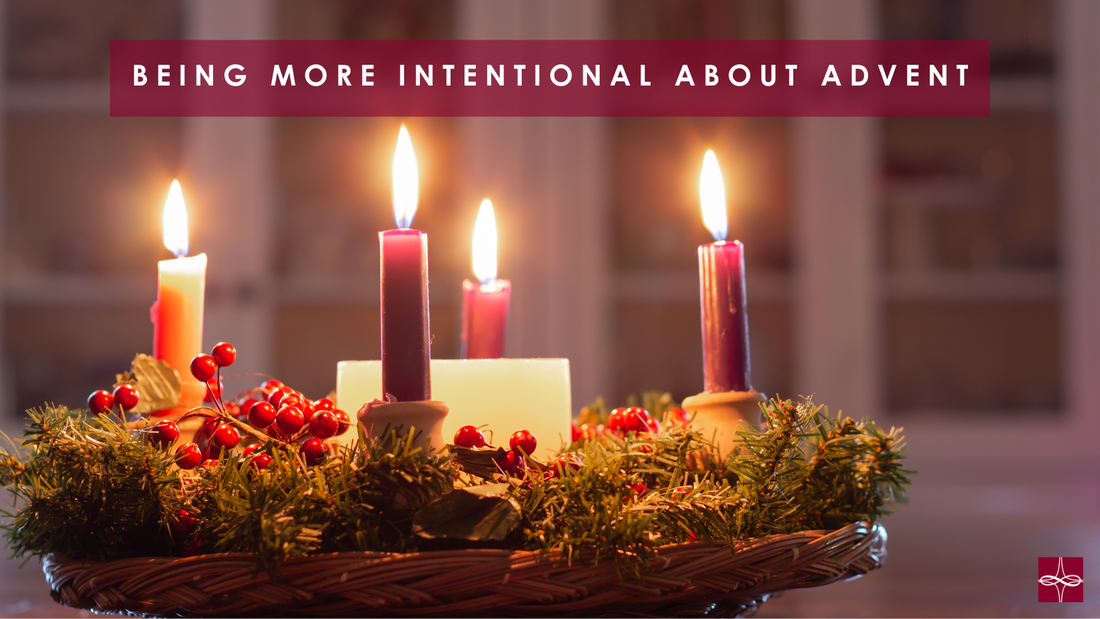

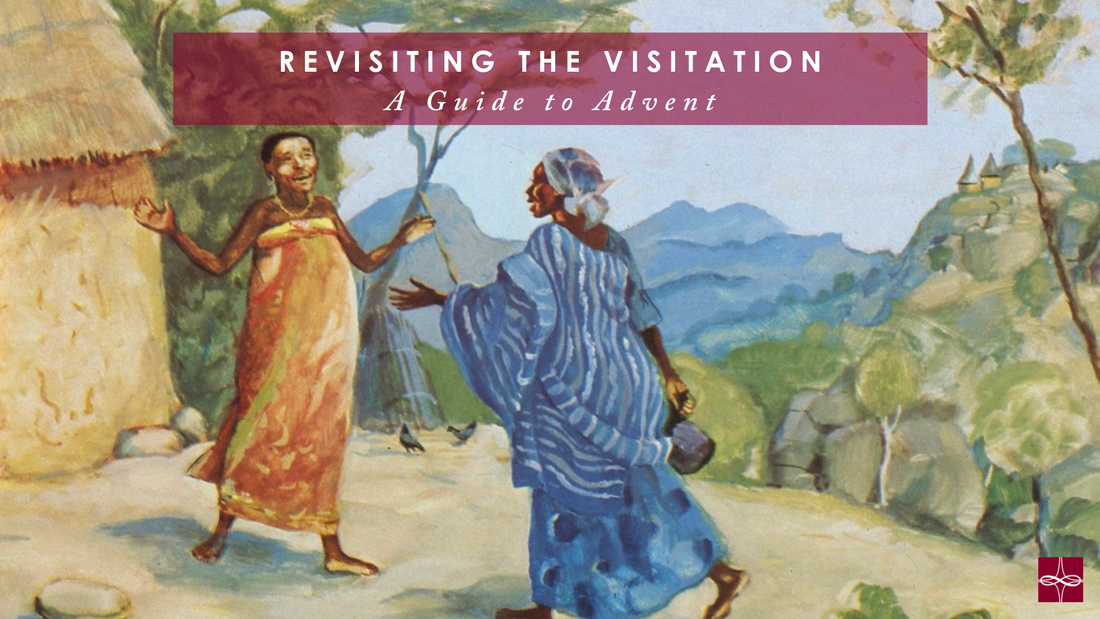

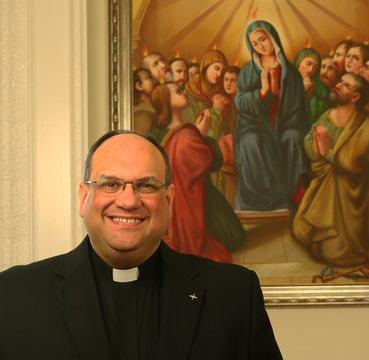
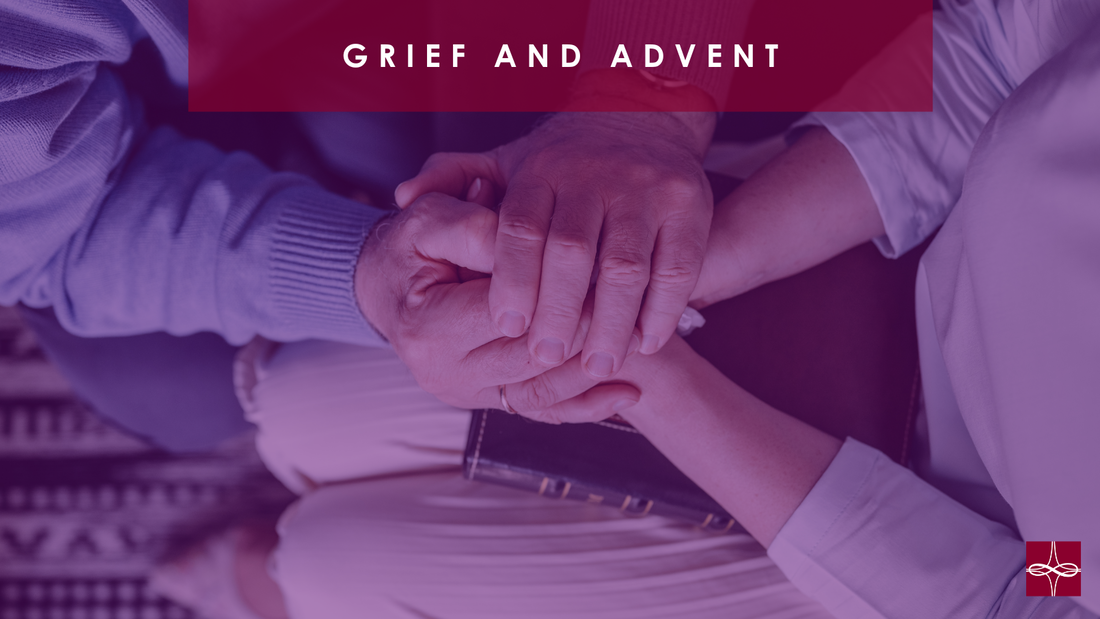
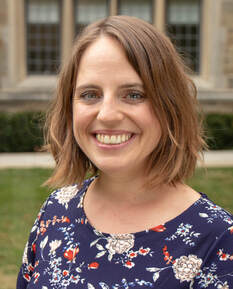


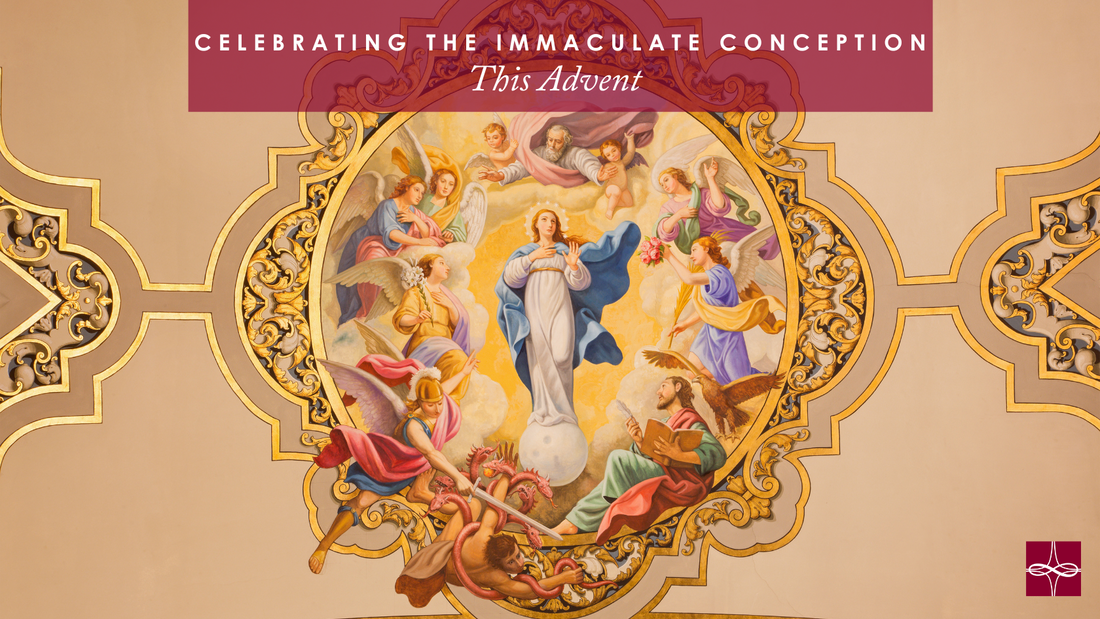

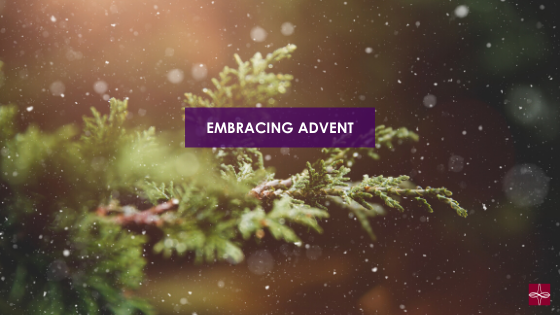

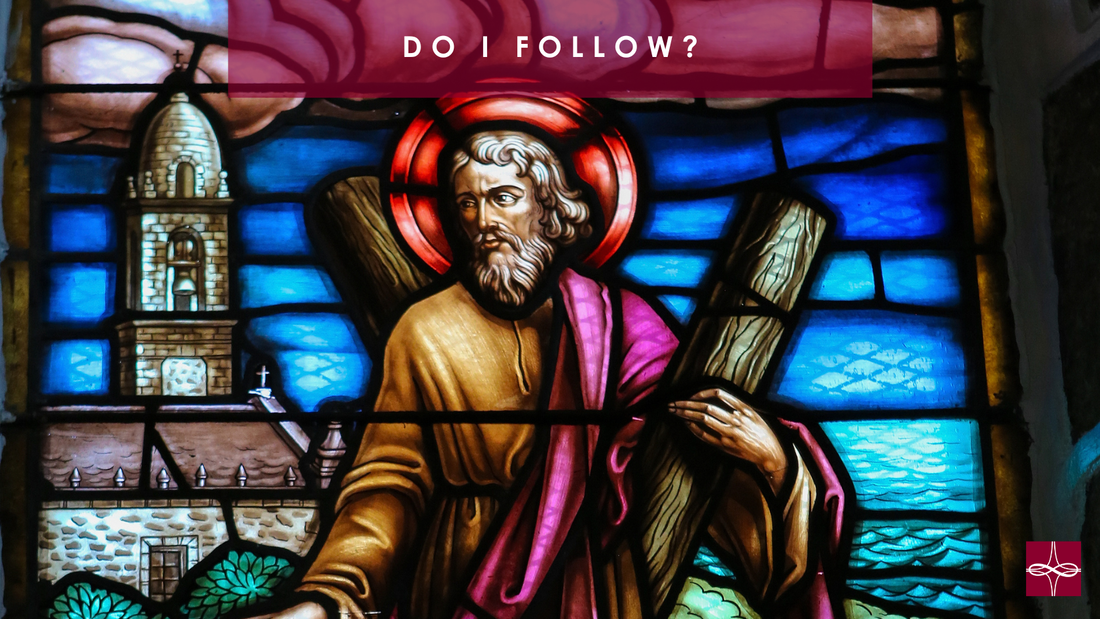
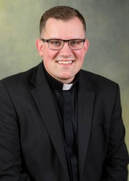
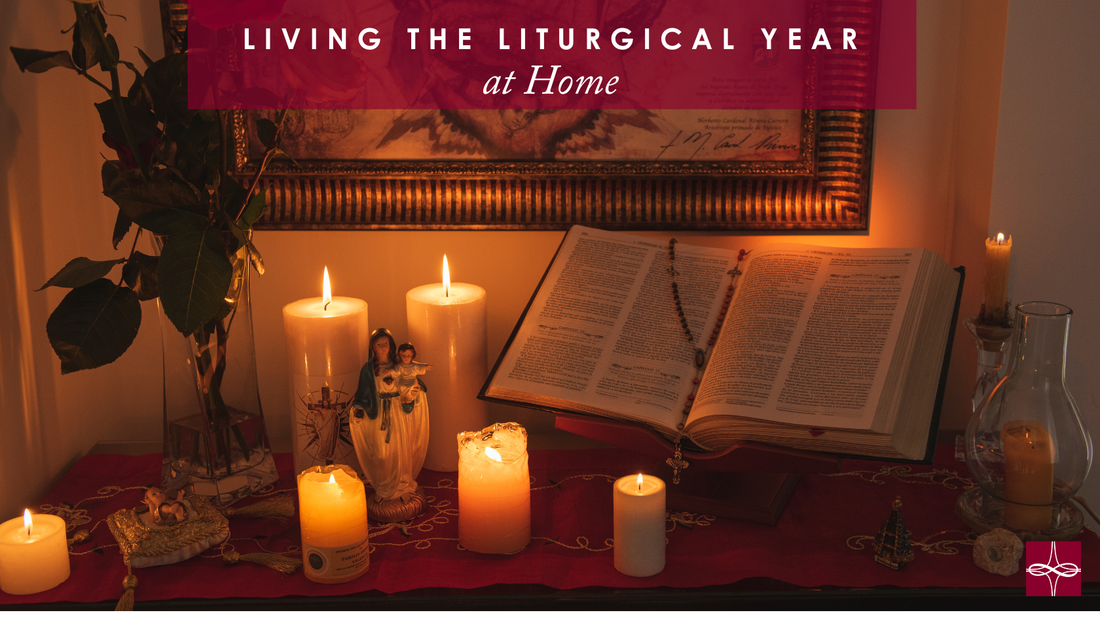
 RSS Feed
RSS Feed